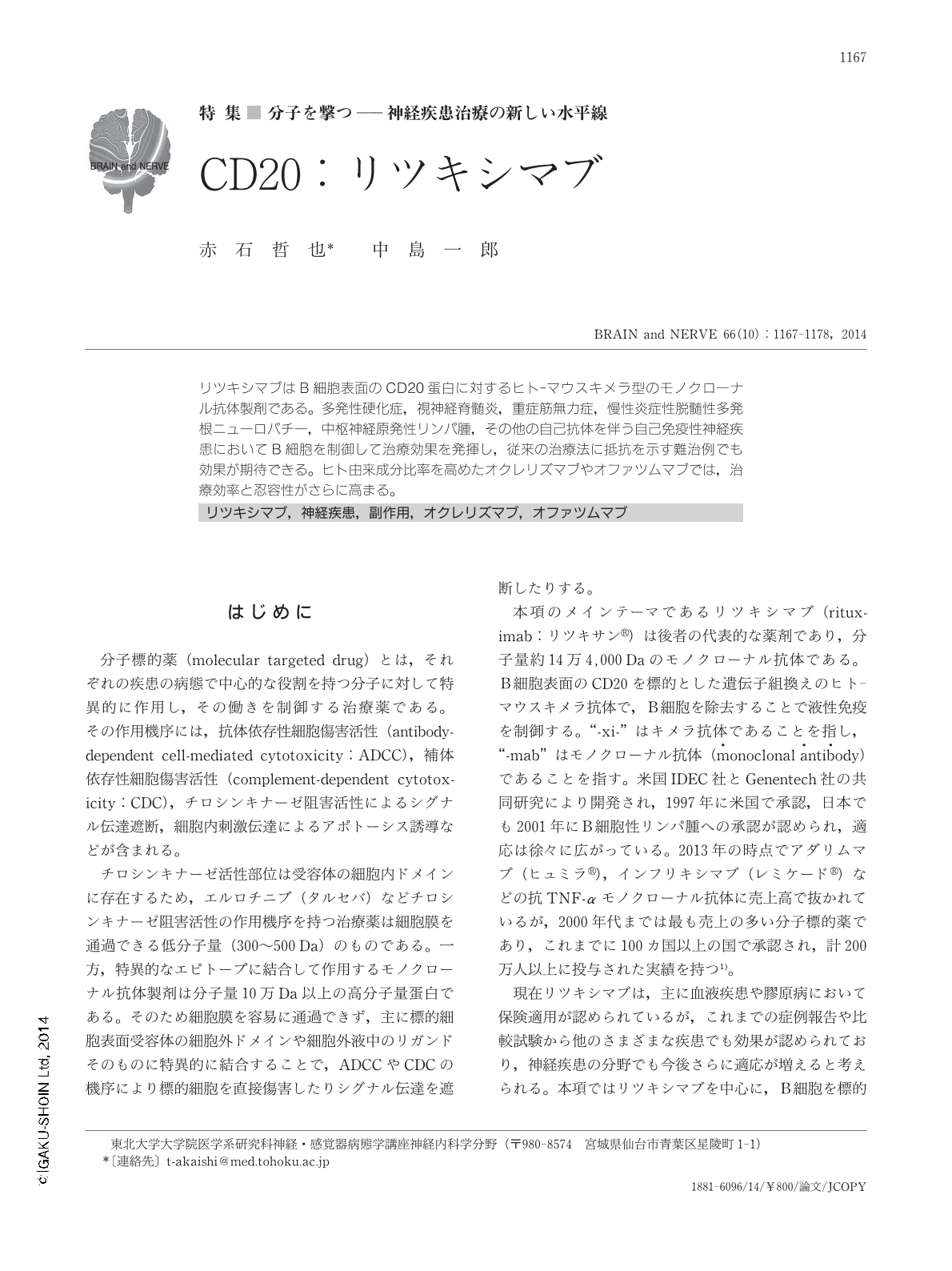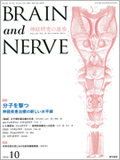Japanese
English
- 有料閲覧
- Abstract 文献概要
- 1ページ目 Look Inside
- 参考文献 Reference
リツキシマブはB細胞表面のCD20蛋白に対するヒト-マウスキメラ型のモノクローナル抗体製剤である。多発性硬化症,視神経脊髄炎,重症筋無力症,慢性炎症性脱髄性多発根ニューロパチー,中枢神経原発性リンパ腫,その他の自己抗体を伴う自己免疫性神経疾患においてB細胞を制御して治療効果を発揮し,従来の治療法に抵抗を示す難治例でも効果が期待できる。ヒト由来成分比率を高めたオクレリズマブやオファツムマブでは,治療効率と忍容性がさらに高まる。
Abstract
Rituximab is a chimeric murine/human monoclonal antibody that specifically targets CD20 molecules on the surface of B-cells, thereby depleting B-cells and regulating humoral immunity. This antibody is mostly used in CD20-positive B-cell lymphoma, but is also widely used in many other connective tissue and neurological disorders. These neurological disorders include multiple sclerosis, neuromyelitis optica, myasthenia gravis, Lambert-Eaton myasthenic syndrome, chronic inflammatory demyelinating polyradiculoneuropathy, paraneoplastic neurological syndromes, primary central nervous system lymphoma, inflammatory myopathy, and some other autoimmune-mediated neurological disorders. Rituximab may be useful even in refractory cases of these disorders. There are some notable side effects in each phase after administration. An infusion reaction can occur just after administration in more than half of cases, though most reactions are negligible. Several months after administration, sustained suppression of humoral immunity with myelosuppression can cause reactivation of Hepatitis B Virus (HBV) progressive multifocal leukoencephalopathy (PML), and severe opportunistic infections, some of which are fatal once they occur. Severe interstitial pneumonia can be treated with steroid pulse therapy, if necessary. To reduce the risk of infusion reactions and improve long-term tolerability, the human-derived components of the antibody have been increased to form humanized or human monoclonal antibodies like ocrelizumab and ofatumumab.

Copyright © 2014, Igaku-Shoin Ltd. All rights reserved.


